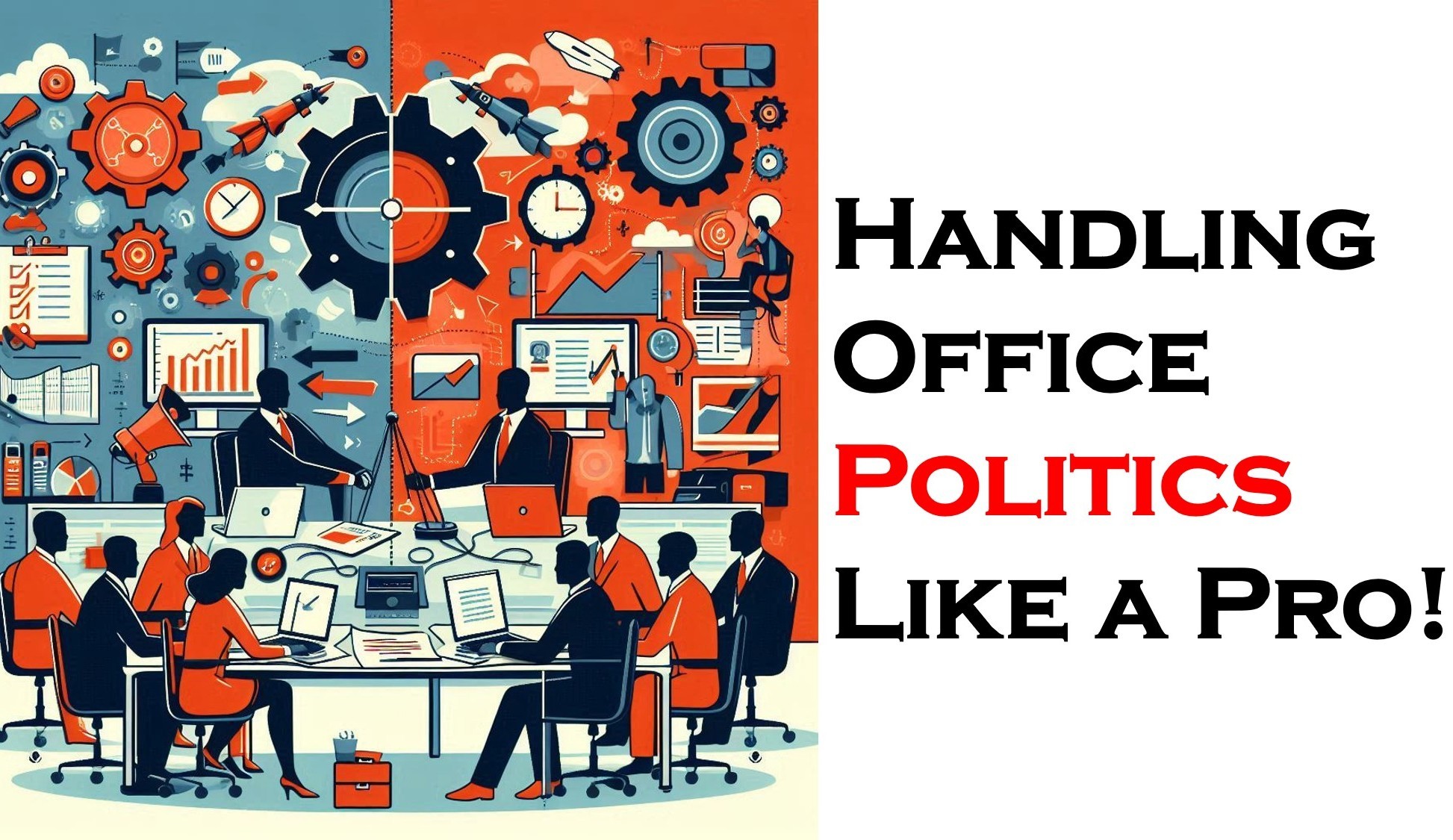
Handling Office Politics Like a Pro!
An HR Guide to Fostering a Positive Workplace
Company office politics, an inevitable part of the workplace environment, can have both positive and negative impacts on employee morale and productivity. As Human Resources professionals, it is crucial to manage and mitigate the negative aspects of office politics to foster a healthy, collaborative, and productive workplace culture. Here are some strategies to effectively deal with office politics from a HR perspective:
1. Promote Open Communication
Encourage Transparency: Create an environment where employees feel comfortable sharing their thoughts and concerns without fear of retaliation. Regular town hall meetings, open-door policies, and anonymous feedback channels can help.
Active Listening: Train managers to practice active listening. Ensuring employees feel heard can prevent misunderstandings and reduce the potential for political manoeuvring.
2. Set Clear Policies and Expectations
Define Roles and Responsibilities: Clearly defined job roles and responsibilities can reduce conflicts over territory and resources. When employees know what is expected of them, it minimizes ambiguity and potential power struggles.
Implement Fair Policies: Develop and enforce fair policies on performance evaluations, promotions, and rewards. Transparency in these processes helps to build trust and reduce the likelihood of political games.
3. Foster a Positive Workplace Culture
Promote Teamwork: Encourage collaboration over competition. Team-building activities, cross-departmental projects, and recognizing team achievements can reinforce a culture of cooperation.
Recognize and Reward Ethical Behaviour: Acknowledge and reward employees who demonstrate integrity and ethical behaviour. This sets a positive example and shows that ethical conduct is valued over political manoeuvring.
4. Address Issues Promptly
Conflict Resolution Training: Provide training for managers and employees on conflict resolution techniques. Early intervention can prevent small issues from escalating into significant political problems.
Investigate and Act: When office politics lead to harmful behaviour, HR must act swiftly. Conduct thorough investigations and take appropriate action to address the situation and prevent future occurrences.
5. Empower Employees
Provide Development Opportunities: Offering professional development and career advancement opportunities can reduce jealousy and competition among employees. When employees see a clear path for growth, they are less likely to engage in political behaviour.
Encourage Ownership: Give employees autonomy in their roles. Empowered employees who feel a sense of ownership are more likely to focus on their work rather than engaging in office politics.
6. Lead by Example
Model Ethical Behaviour: HR professionals and leadership should model the behaviour they expect from employees. Demonstrating integrity, transparency, and fairness sets the tone for the entire organization.
Mentor and Support: Provide mentorship and support to employees, helping them navigate the complexities of office politics in a positive manner.
7. Monitor and Adapt
Regular Surveys: Conduct regular employee surveys to gauge the workplace climate and identify potential political issues. Use this feedback to make necessary adjustments.
Stay Informed: Keep abreast of trends and best practices in HR and employee relations. Adapting to new strategies and approaches can help in managing office politics more effectively.
In conclusion, dealing with office politics requires a proactive and strategic approach. By promoting open communication, setting clear policies, fostering a positive culture, addressing issues promptly, empowering employees, leading by example, and continuously monitoring the workplace climate, HR professionals can mitigate the negative impacts of office politics and create a more harmonious and productive work environment.